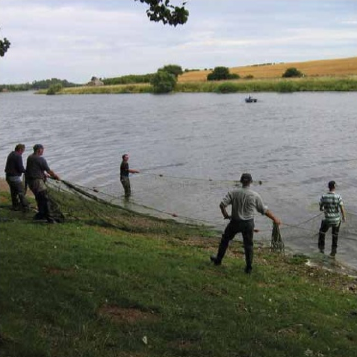Brussels – The news released yesterday that GM salmon can pass on their modified DNA to brown trout is yet another blow to arguments in favour of commercialising the transgenic fish for food. Food & Water Europe today demanded that European regulators use these scientific revelations to protect EU habitats and consumers by urging the FDA to reject the application to commercialise GM salmon.
The authors of the paper from the Memorial University of Newfoundland, published by the Proceedings of the Royal Society B, shows that GM salmon would have “substantial ecological consequences for wild Atlantic salmon should they ever come into contact with nature.”
When GM salmon were crossed with brown trout, roughly 40 percent of the offspring acquired the GM genes. These GM offspring grow more quickly than wild salmon, trout or salmon-trout hybrids in a commercial laboratory setting.
Food & Water Europe Food Policy Advisor Eve Mitchell said, “European regulators keep saying they base their decisions on GMOs on science. The scientists are explicitly telling them they need to look at this problem. Given the huge threats to European wildlife, habitats and industries, not to mention the complete lack of demand for GM fish as food, the very least the European regulators can do is protest most strongly to the FDA not to approve the GM salmon.”
The FDA is in the final throes of deciding on the application by biotech company AquaBounty for authorisation to sell the fish as food. Dogged by controversy, including evasion of full environmental impacts assessment by placing egg production and growing facilities outside the U.S., the company dismisses the problem by claiming the hybrid offspring are sterile and that in any case the GM fish will be kept in contained facilities. Yet the ability to reproduce successfully is far from the only problem, and the chequered history of fish farm escapes shows how error or accident are the real risks.
Ms. Mitchell said, “It’s accidents we are worried about, and they simply can’t be ruled out. This research begins to hint at the wide-ranging problems such accidents will bring. AquaBounty attempts to argue that the GM hybrid offspring pose no problem because they are sterile, but this does not solve the problem if those GM fish outcompete natural fish for food, nest sites, mates and so on. This could have devastating impacts on natural wild fish.”
On 23 May the European Food Safety Authority (EFSA) published guidance on performing risk assessment of GM animals, including fish, insects, birds, pets and farm animals. Campaigners say the move is both premature and against the wishes of European consumers, who roundly reject GM animals for food. GeneWatch UK expressed disappointment these guidelines were issued before the European Ombudsman had a chance to rule on the organisation’s complaint about EFSA’s failure to consult on GM insects in the food chain and about conflicts-of-interest on EFSA’s GM insects working group. Nevertheless the regulatory guidance is now in place for an application to be made to authorise the GM fish as food in the EU should the FDA give commercialisation the nod.
Ms. Mitchell added, “The FDA has done extremely poor scientific work assessing the environmental impacts of GM salmon since the beginning, and this new, independent research highlights yet again the agency’s failure to protect the public and the environment. There is a clear need to protect European wild salmon and trout, the angling and fishing industries for both, the ancillary businesses associated with those industries and tourism, and the natural environment upon which other animals rely.”
For more information:
Eve Mitchell: +44(0)1381 610 740 [email protected]



